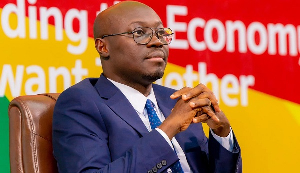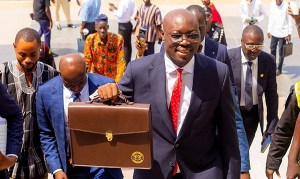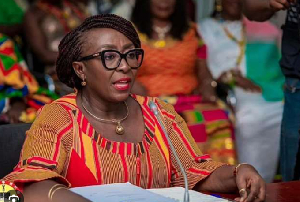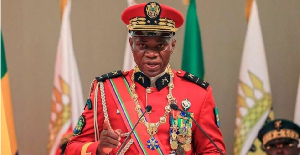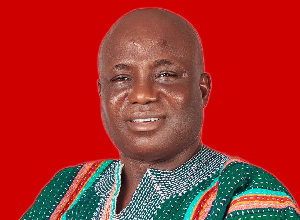Accra, March 18, GNA - Fifteen Heads of State and Government from the Economic Community of West African States (ECOWAS) would assemble in Accra on Friday to participate in a Summit that would also have Mr James D. Wolfensohn, President of the World Bank, in attendance.
President Thabo Mbeki of South Africa, one of the brains behind the NEPAD document would also attend the Summit.
The purpose is to enable ECOWAS Leaders and the Bank President to dialogue and find solutions to the difficulties facing the West Africa Sub-Region in the pursuit of its integration and implementation programmes of the New Partnership for African Development (NEPAD).
Briefing Journalists in Accra on Thursday, Dr Kofi Konadu Apraku, Minister of Regional Cooperation and NEPAD, said the upcoming event was unique as it presented the Community as one unified block in dialogue with the World Bank against the hitherto individualistic dealings. He said with the advent of regional integration as a means of attaining global economic and social development, "partnership and the nature of relationships have to undergo a re-orientation in recognition of the reality."
Dr Apraku said the Summit was important since, "it is not going to be a Donor Conference where donors come to pledge monies, but rather an opportunity for West African Leaders to market ECOWAS as the Sub-Regional body for the implementation of NEPAD projects and initiatives.
"It will provide an opportunity to review the challenges facing ECOWAS in carrying out its mandate and see where and in what way the World Bank can make appropriate interventions," The Minister stressed. Dr Apraku noted that the prime objective of ECOWAS was to promote cooperation and integration with a view to establishing an economic and monetary union as a means of stimulating economic growth and development in West Africa.
He said, "the Region was politically and economically fragmented .... but a successful integration of West African states would result in the removal of tariff and non-tariff barriers which will reduce the cost of doing business and lower the prices of export products."
The Heads of State and would present to the World Bank the projects approved under the NEPAD Short Term Action Plan and seek support to implement them.
Dr Apraku said already the World Bank had committed itself to improve the capacity of the ECOWAS Secretariat to enable it to deliver on major programmes that would bring important benefits to the people of West Africa.
"The Programmes include the removal of the numerous barriers to movement of goods, persons and services and improvement in regional telecommunications connectivity."
Dr Apraku spoke on the conflict situation plaguing the Sub-Region, saying this would require confronting some critical issues such as poor governance; trade in illegal arms and weak security.
Dr Mohammed Ibn Chambas, ECOWAS Executive Secretary praised Ghana's consistency in hosting ECOWAS, stressing that President Kufuor's exemplary leadership would enhance the integration efforts considerably. He said West Africa had a vision to build an open-minded business friendly environment that was engaged in a number of integration activities and the building of sub-regional infrastructure to facilitate economic operations.
He gave the assurance that ECOWAS would sustain its relationship with other development partners such as the World Bank, "a dialogue which started in Mali in 2000."
Dr Chambas said ECOWAS had come to appreciate the support of the World Bank to transform the face of development in the Sub-Region and cited programmes aimed at making ECOWAS the focal point of driving NEPAD programmes, capacity building, market integration projects and the installation of Sub-Regional infrastructure.
Mr Mats Karlsson, World Bank Country Director said the bank was happy to be working with ECOWAS to bring development to the more than 250 million people in the Sub-Region.
He said that as a citizen of Europe, he was aware of the immense benefits that integration could bring to nations and accelerate the growth rate.
Mr Karlsson, who is also the Country Director for Liberia and Sierra Leone, said: "As we step up efforts in the three countries, there is a limit to what we (Bank) can achieve, unless it transcends the borders of these countries that we are cooperating with."
The World Bank is collaborating with ECOWAS in curbing HIV/AIDS, Regional Power Pool, the West African Gas Pipeline Project and the West African Development Bank.
Mr Karlsson said regional cooperation was a tough thing to do, but the benefits were immense and urged the 15 states to increase efforts towards integration. "The challenge is the strategy to use."
General News of Thursday, 18 March 2004
Source: GNA


